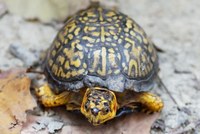Graduate Programs

The department offers M.S. and Ph.D. programs in Biology with diverse research interests among faculty, spanning molecular origins to disease evolution and climate-biotic interactions. Specific research fields encompass genetics, physiology, metabolism, ecology (including plant and animal), evolutionary biology, and more.
Graduate students have opportunities to collaborate with faculty across various university schools and departments, including Applied Mathematics, Geosciences, and Engineering, as well as medical school programs like Neurobiology, Biochemistry, Microbiology, and Physiology.
The department hosts weekly seminars, enabling interaction with speakers from various biology domains. Graduate students can also invite and host speakers.
M.S. Programs ▶
Our two M.S. Programs are designed to be sufficiently flexible to meet our diverse students’ needs and interests. The M.S. thesis program is generally chosen by students whose career goals include a research emphasis or component. Students choosing this option complete a significant independent research project under the supervision of a faculty member in the department.
The M.S. nonthesis program is designed for students who are not sure of their specific career goals or who do not anticipate a need for well-developed independent research skills in their careers. Students who hope to improve their qualifications for medical or dental school admission often pursue this option.
Undergraduates at the University of Louisville who wish to obtain a non-thesis M.S. may be eligible for the accelerated non-thesis M.S. program. In this program, students take up to 9 credit hours of graduate work during their senior year which are applied to the M.S. degree.
Ph.D. Program ▶
Graduate education in the Ph.D. program emphasizes research, and most of our students have gone on to positions in universities and colleges. Prospective graduate students should review faculty research interests and then communicate with professors whose research interests match their own before applying to the university.
Students seeking the Ph.D. Degree in Biology traditionally have a master's degree or its equivalent; however, students may enter the program with only the baccalaureate degree. Generally, the first year or two is spent in course work, research is begun by the second year, and the thesis/dissertation completed in the final year. On average, students take 2 1/2 years to earn the M.S. and 5 years to earn the Ph.D.
